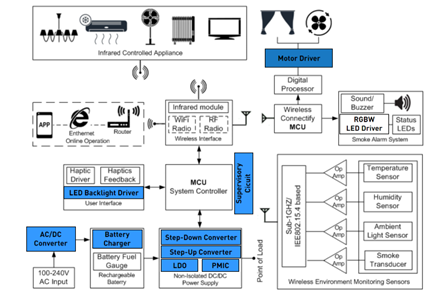Cutting-edge Research in Motor Technology
Ground-breaking research and the creation of experimental technologies constantly transform the landscape of motor technology. Academic institutions and industrial research teams are driving these developments to overcome existing restrictions and open up new opportunities in the field of motor applications.
Current Research Projects and Experimental Motor Technologies
Advanced Materials: The development of new materials that provide the potential to improve motor efficiency while simultaneously reducing weight is a significant field of research. For example, the use of nanomaterials or magnets that do not contain rare earth elements has the potential to reduce expenses and lessen reliance on limited resources, all while preserving good performance.
Ultra-Efficient Motor Designs: Researchers are exploring designs that significantly enhance electrical efficiency. Leading this research are innovations like switched reluctance motors and highly efficient brushless motors, which provide more sustainable options by using less power and producing less waste heat.
Wireless Power Transfer: In the process of developing experimental technologies that enable wireless power for motors, these technologies are now in the process of being developed. These technologies have the potential to transform the integration of motors into machinery and vehicles by eliminating the need for physical electrical connections.
Integration of AI and Machine Learning: Innovative projects are combining AI algorithms to optimize motor performance in real-time, reduce energy consumption, and identify maintenance needs before problems occur.
Universities and Institutions Leading Motor Innovation
Massachusetts Institute of Technology (MIT): The research that MIT is conducting on magnetic materials and electromechanical systems is continuing to pave the way for breakthrough motor technologies that may soon be used in mainstream applications.
Stanford University: Researchers at Stanford university are aiming to incorporate biodegradable materials into motor designs in order to improve environmental sustainability and reduce the amount of electronic trash that is produced.
Delft University of Technology in the Netherlands: Delft University of Technology, located in the Netherlands, is a well-known research institution for its groundbreaking work in the field of electromagnetic systems. Delft's research includes programs that attempt to improve motor efficiency and reduce the ecological impact of motor manufacturing.
Technical University of Munich (TUM): It is the responsibility of the Technical University of Munich (TUM) to oversee a number of initiatives that are centered on the automation of motor-driven systems and the improvement of motor efficiency through the utilization of modern thermal management techniques.
Not only are these schools working to advance the theoretical aspects of motor technology, but they are also actively partnering with industry leaders in order to transfer these technologies from the laboratory to the market. As these experimental technologies grow, they hold the possibility of revolutionizing industries ranging from industrial manufacturing to automotive manufacturing by providing motor solutions that are more efficient, sustainable, and cost-effective while also being more environmentally friendly.
Potential Breakthroughs and Their Implications
There are a number of potential breakthroughs that are set to significantly revolutionize the way in which industries operate and interact with motor-driven systems. These breakthroughs are expected to occur as motor technology continues to advance. The purpose of these developments is not only to transform the environmental and economic landscape of motor applications, but they also promise to improve performance and efficiency.
Future Technological Breakthroughs and Their Possible Impacts
Superconducting Motors: The investigation of superconducting materials may result in the creation of motors that are substantially more efficient than the models that are now in use. This would result in a considerable reduction in the number of electrical losses and an improvement in the overall efficiency of the system. Such motors would significantly revolutionize industries like wind power generation and public transportation, where efficiency is of the utmost importance.
Soft Magnetic Composite Materials: The use of soft magnetic composites is yet another field with the potential to bring about significant breakthroughs. Unlike typical metals, these materials allow for the formation of complex shapes. This enables the creation of motor designs that are more compact while still exhibiting superior performance characteristics. This has the potential to result in motors that are lighter and more efficient, making them suitable for a wide variety of applications, ranging from consumer electronics to aerospace.
Quantum Motor Technologies: The use of quantum technologies in motor design could one day allow for the creation of highly accurate control systems that are significantly more advanced than those currently in use. This is despite the fact that quantum technologies are still in their infancy. Through the manipulation of electromagnetic fields at the quantum level, these systems have the potential to function with higher efficiency and consume less energy.
Predictions on How These Breakthroughs Could Transform Industries
Automotive Sector: Within the automotive industry, the use of cutting-edge motor technology has the potential to further expedite the transition towards electric vehicles. The general public would be more interested in electric vehicles if they were equipped with motors that were more efficient and smaller. This would allow for longer driving ranges and faster charging times.
Manufacturing: The manufacturing industry could benefit from improved motor technology, which could result in production lines that are more knowledgeable and flexible. High efficiency motors could enable robots to function at lower costs and with greater precision, thereby enhancing their operational efficiency and overall quality.
Energy Sector: Improvements in motor efficiency could mean more viable options for remote or portable power systems, which could potentially make renewable energy sources more competitive with traditional fossil fuels. This is particularly relevant for the energy sector, which is concerned with the production of energy, particularly renewable energy.
Consumer Appliances: On a smaller scale, improved motors have the potential to change consumer appliances by making them more energy-efficient and capable of higher functions within compact designs. This has the potential to contribute to considerable reductions in the amount of energy that households consume.






直接登录
创建新帐号